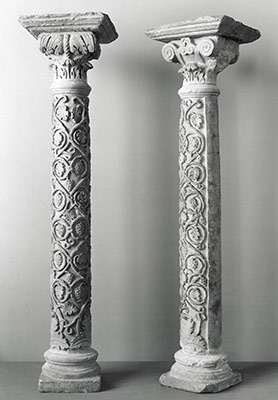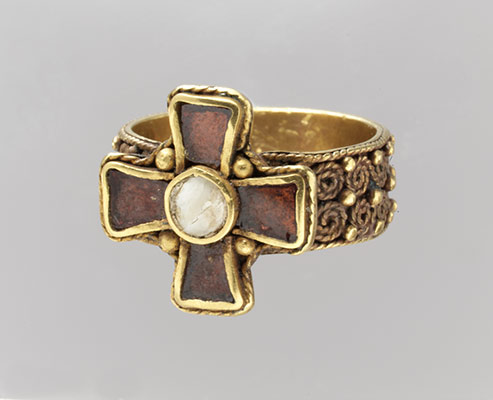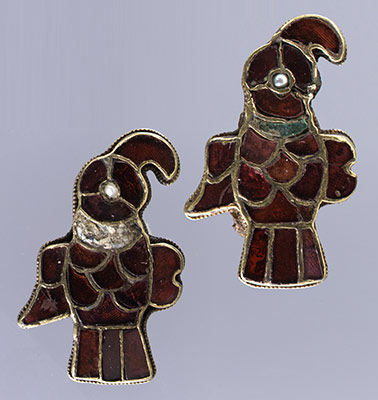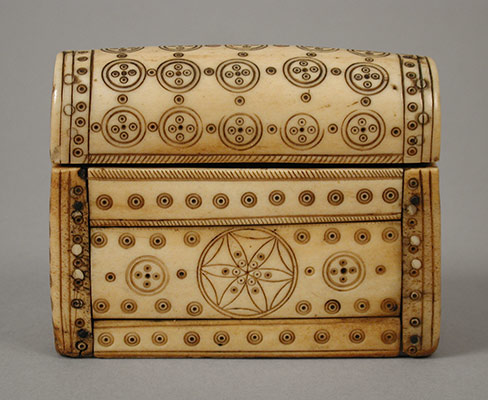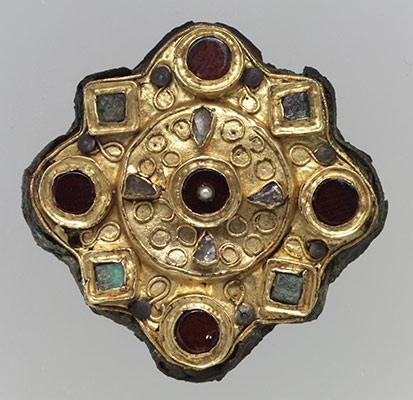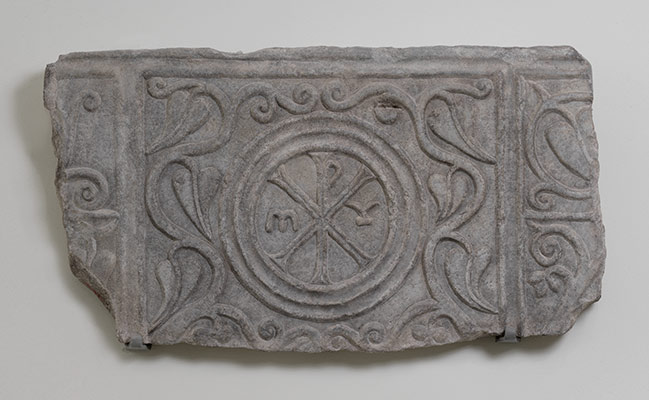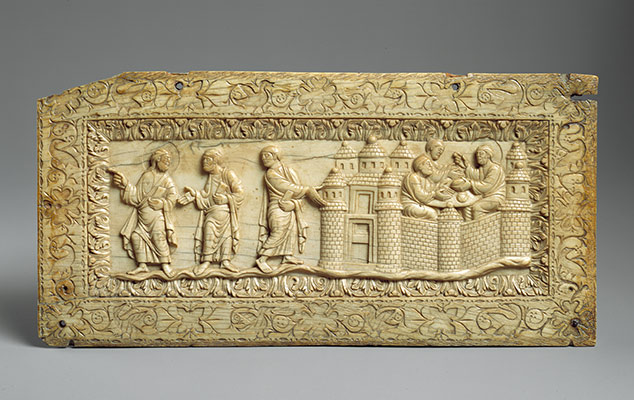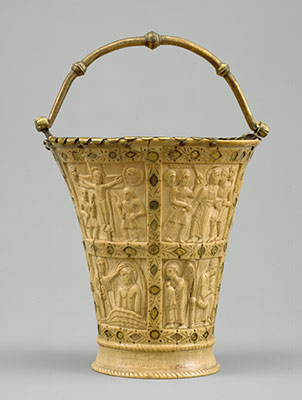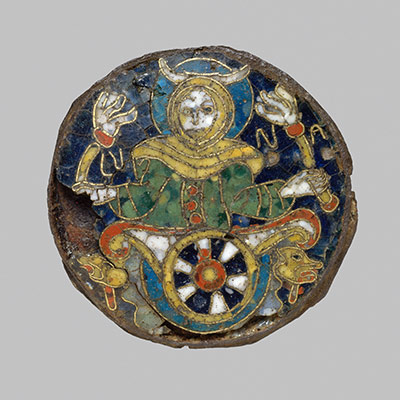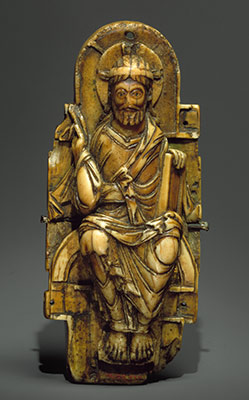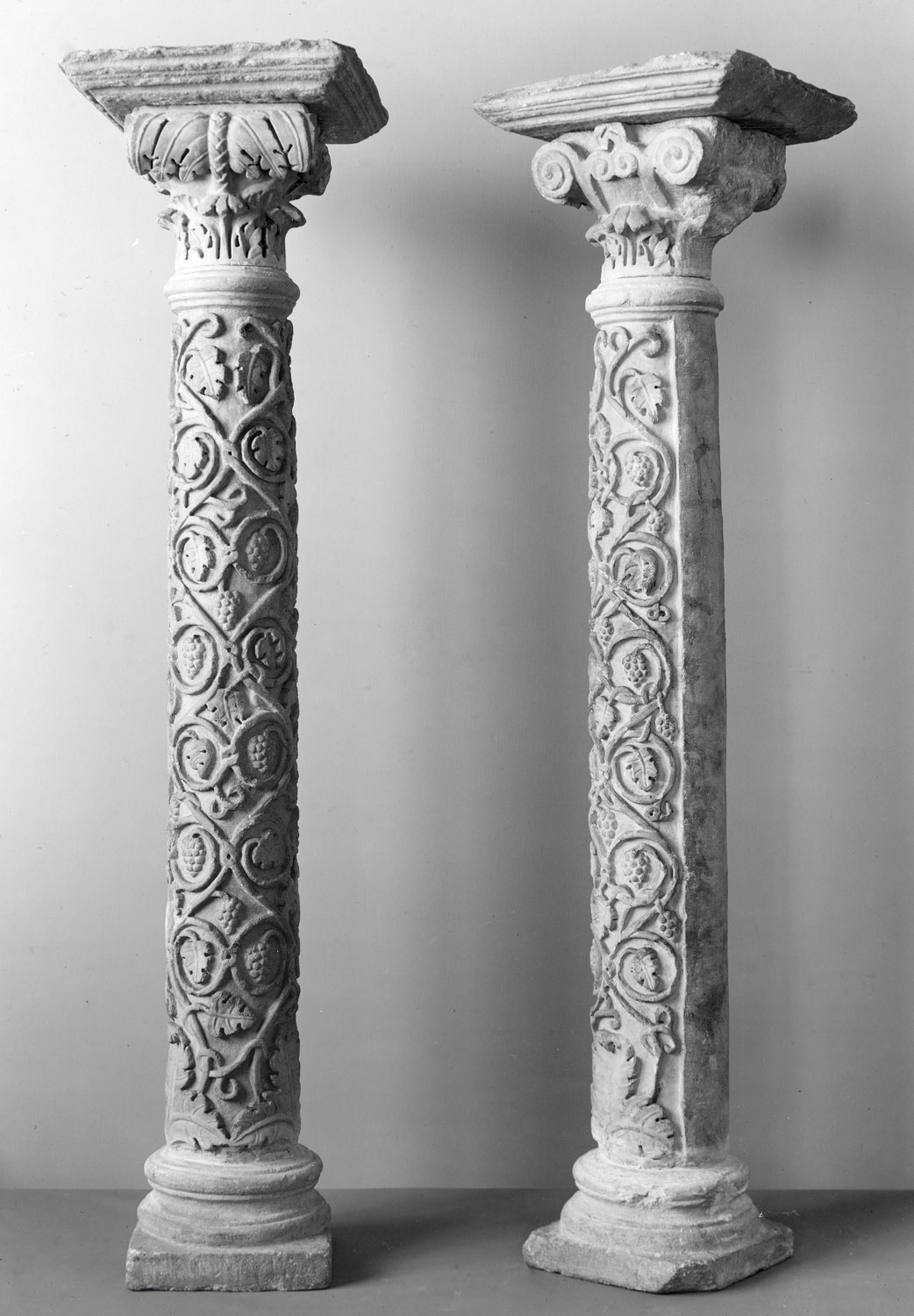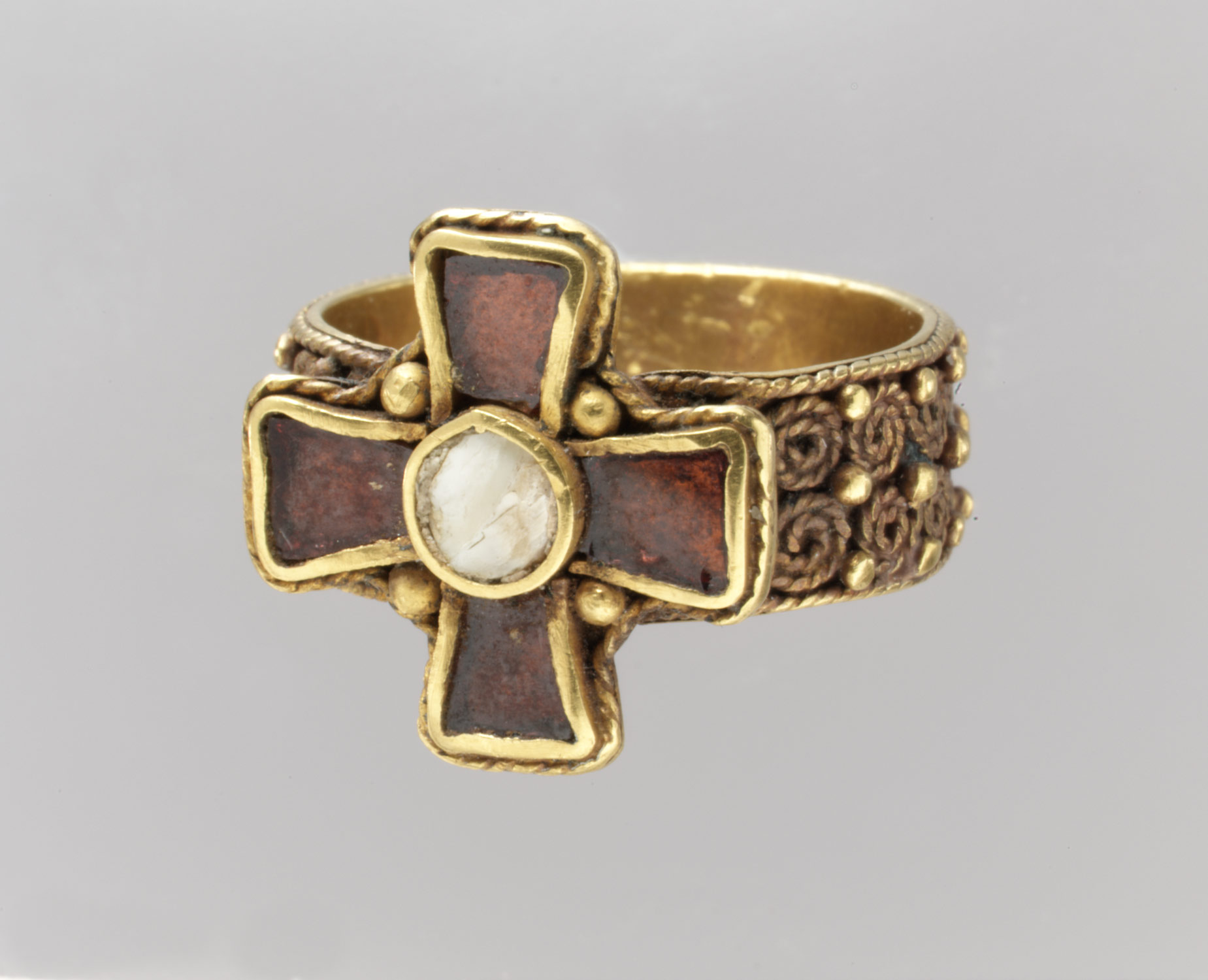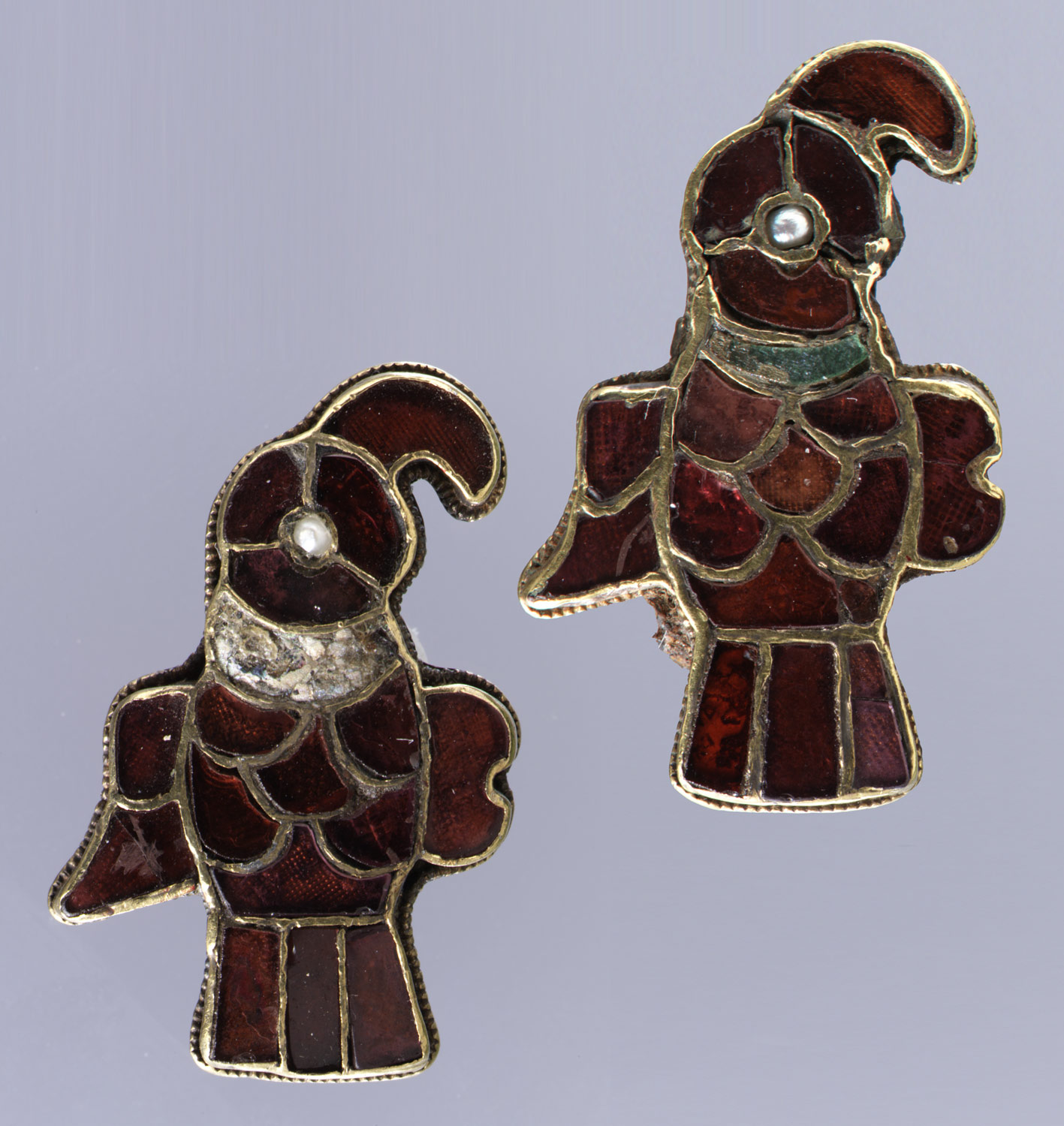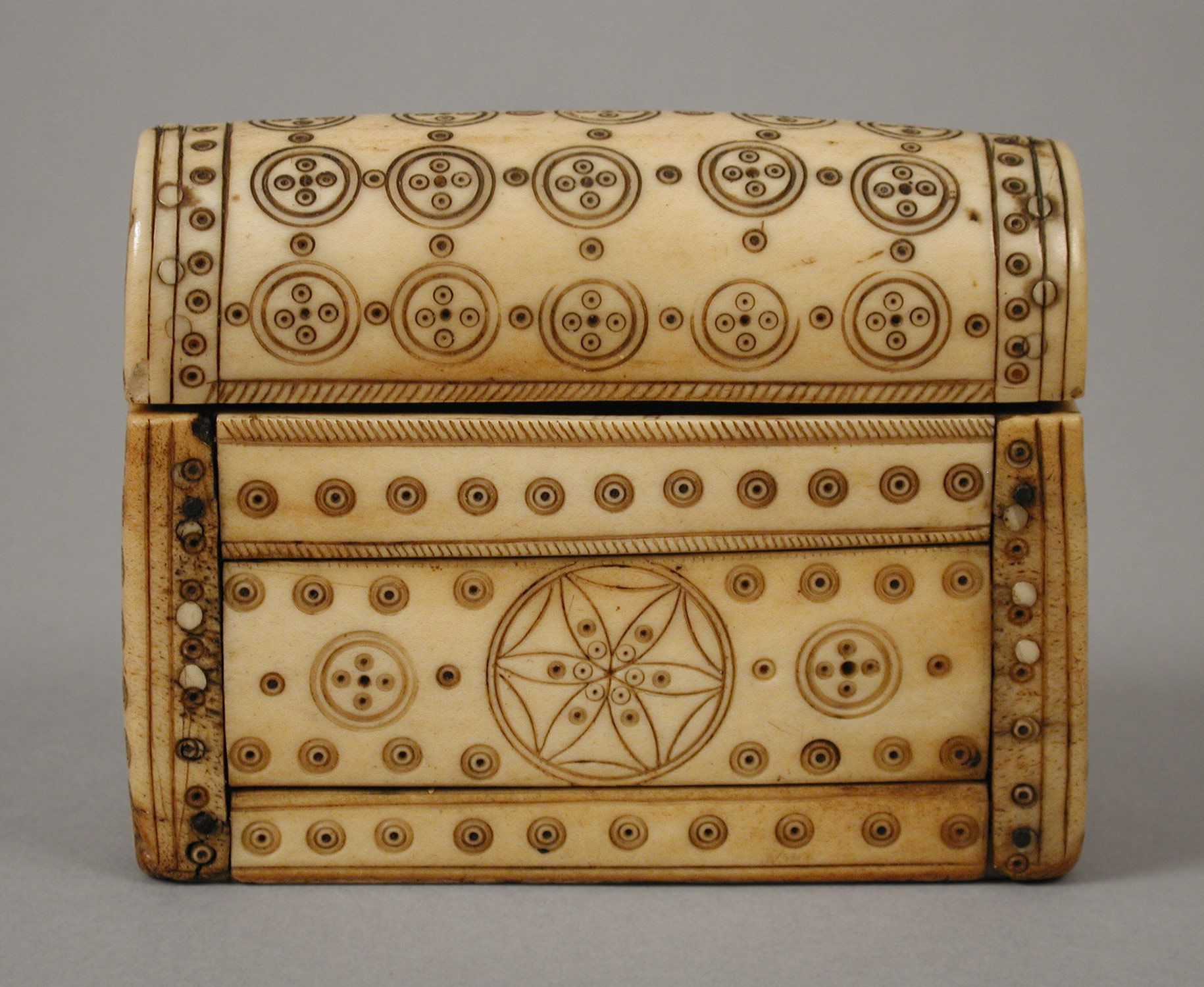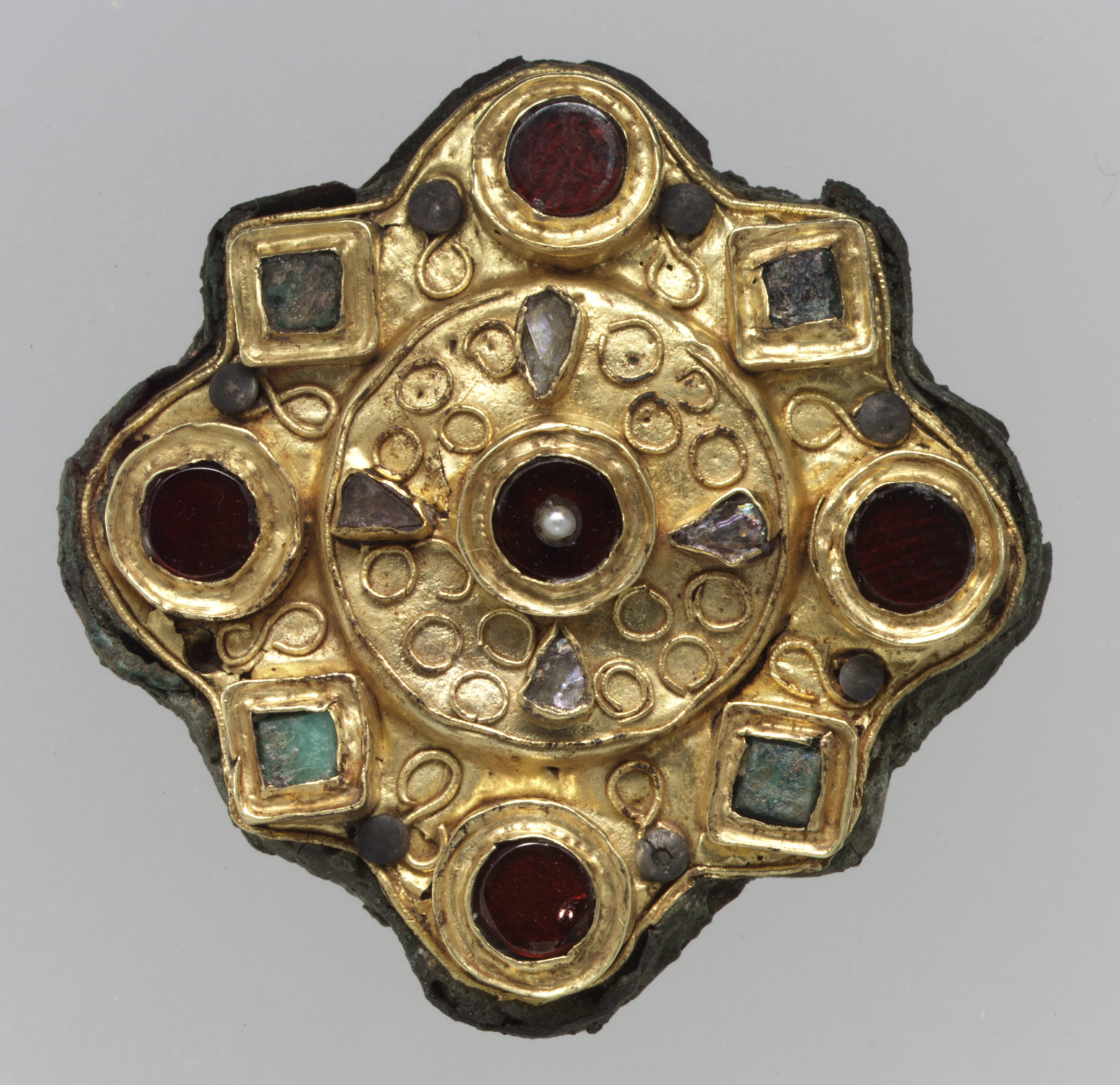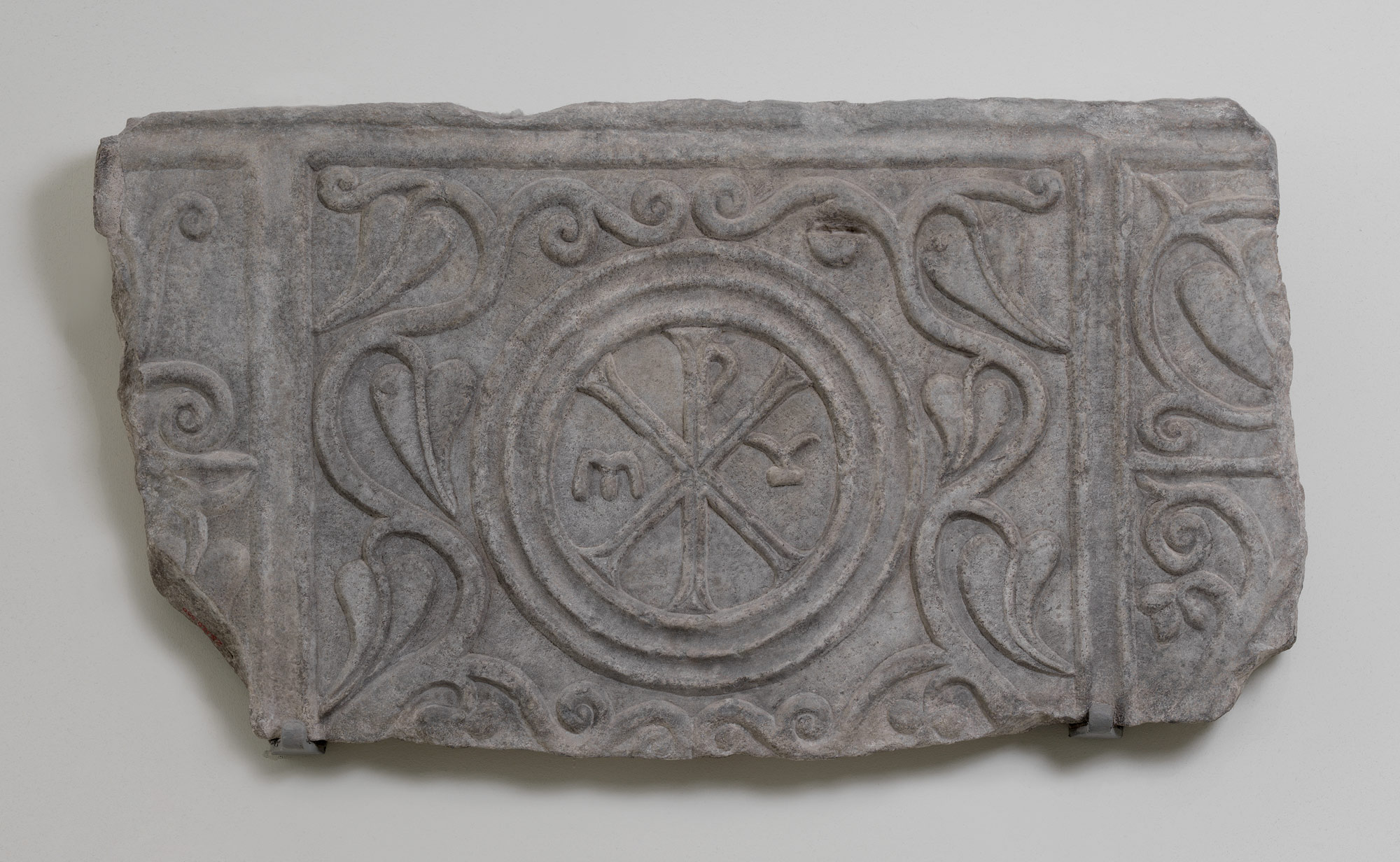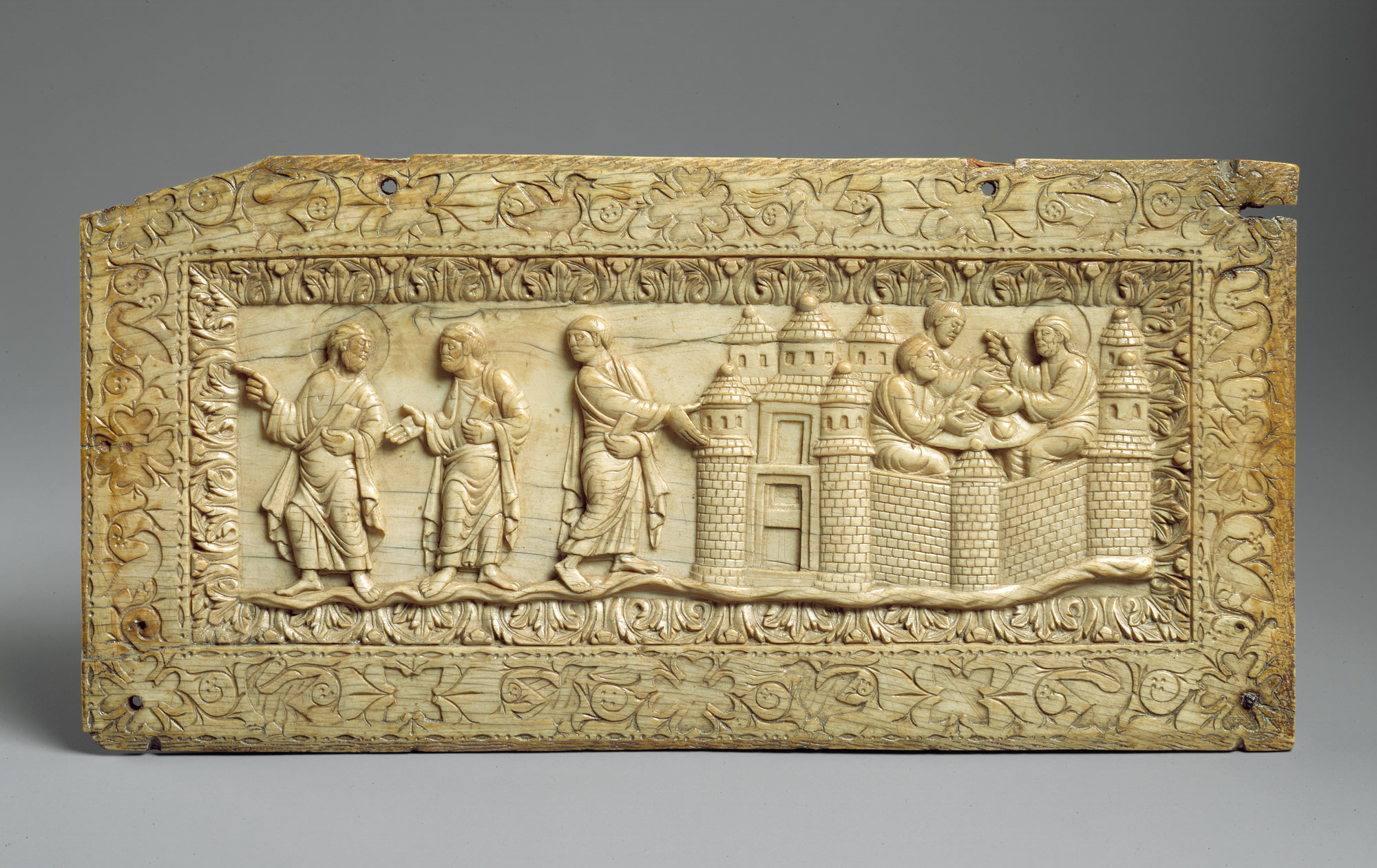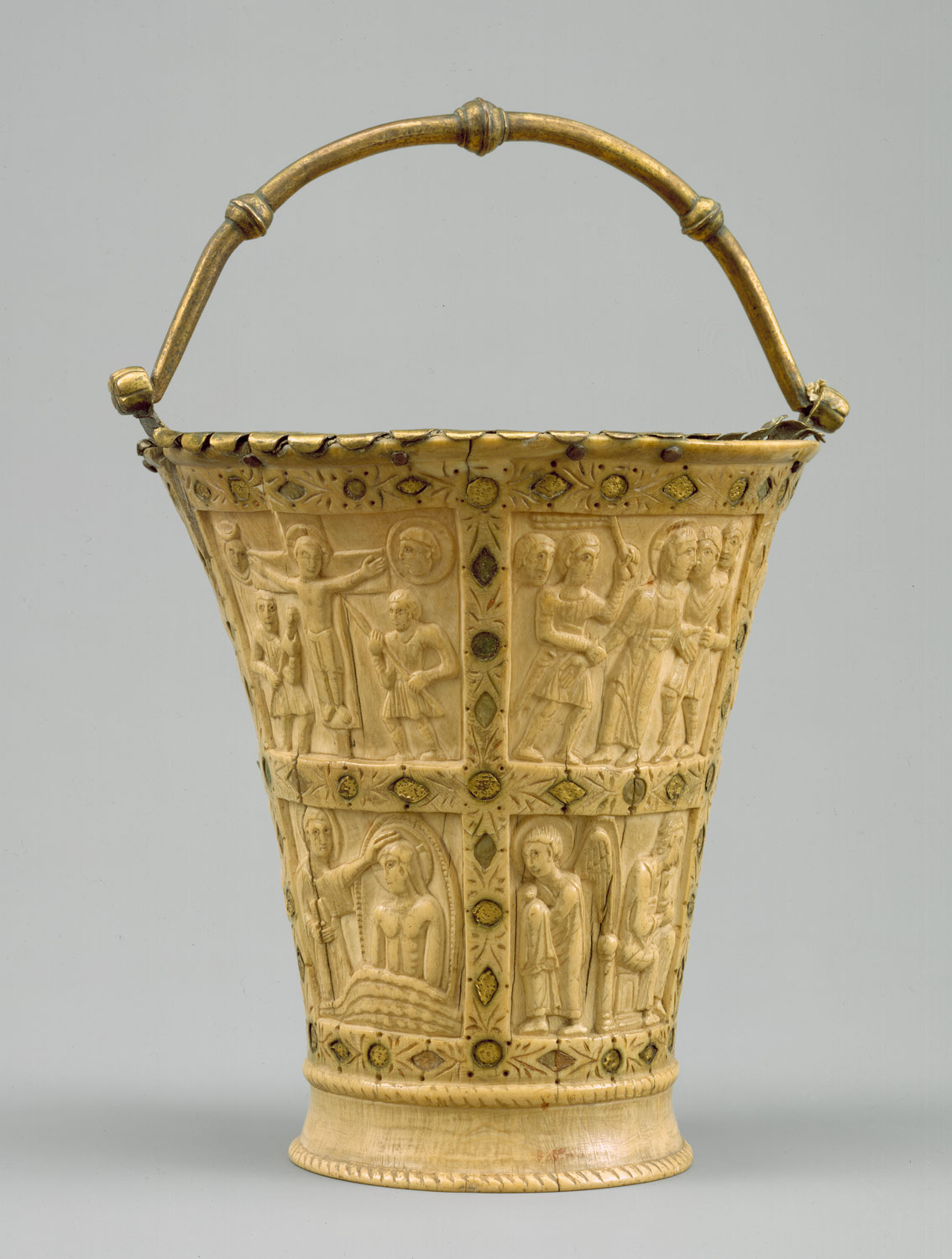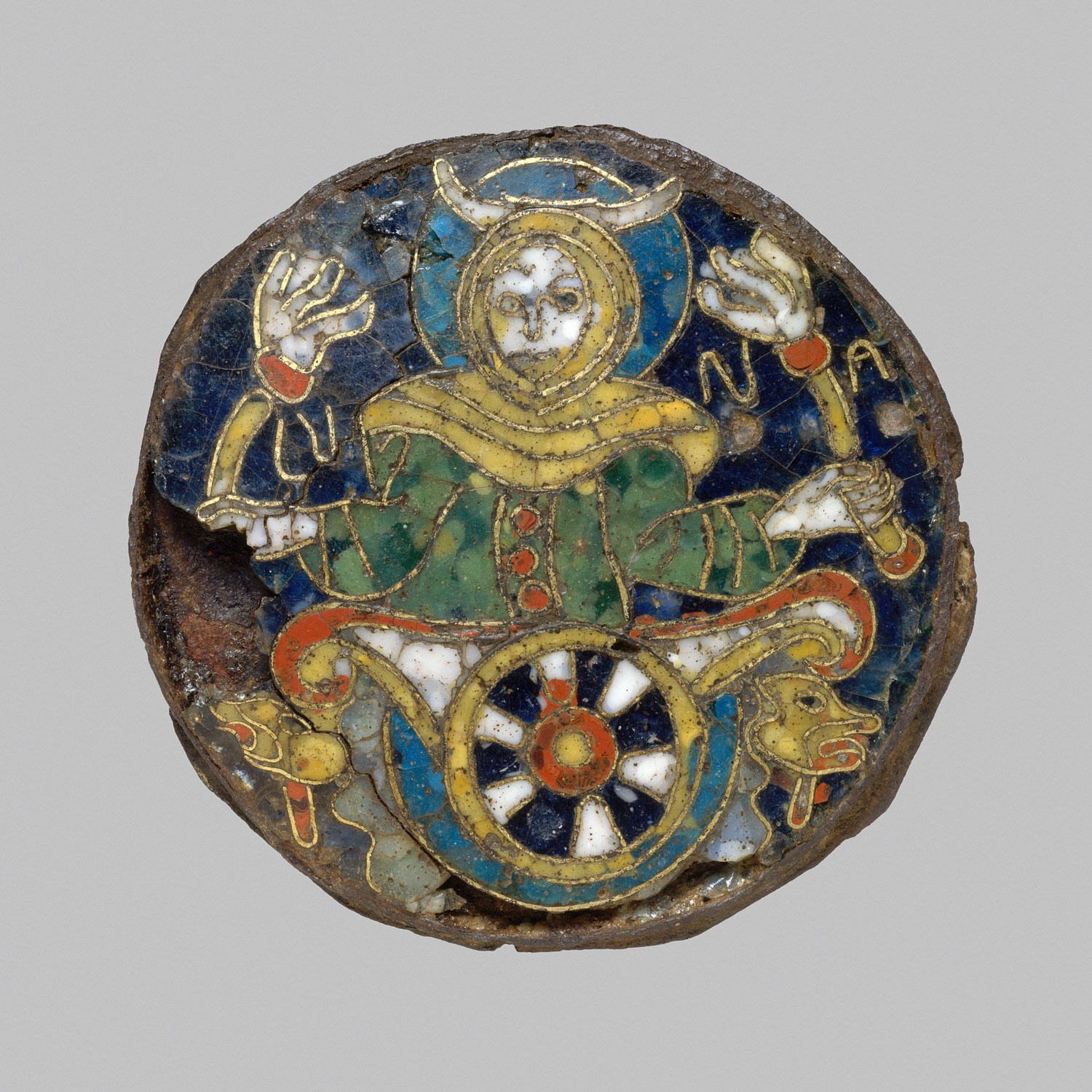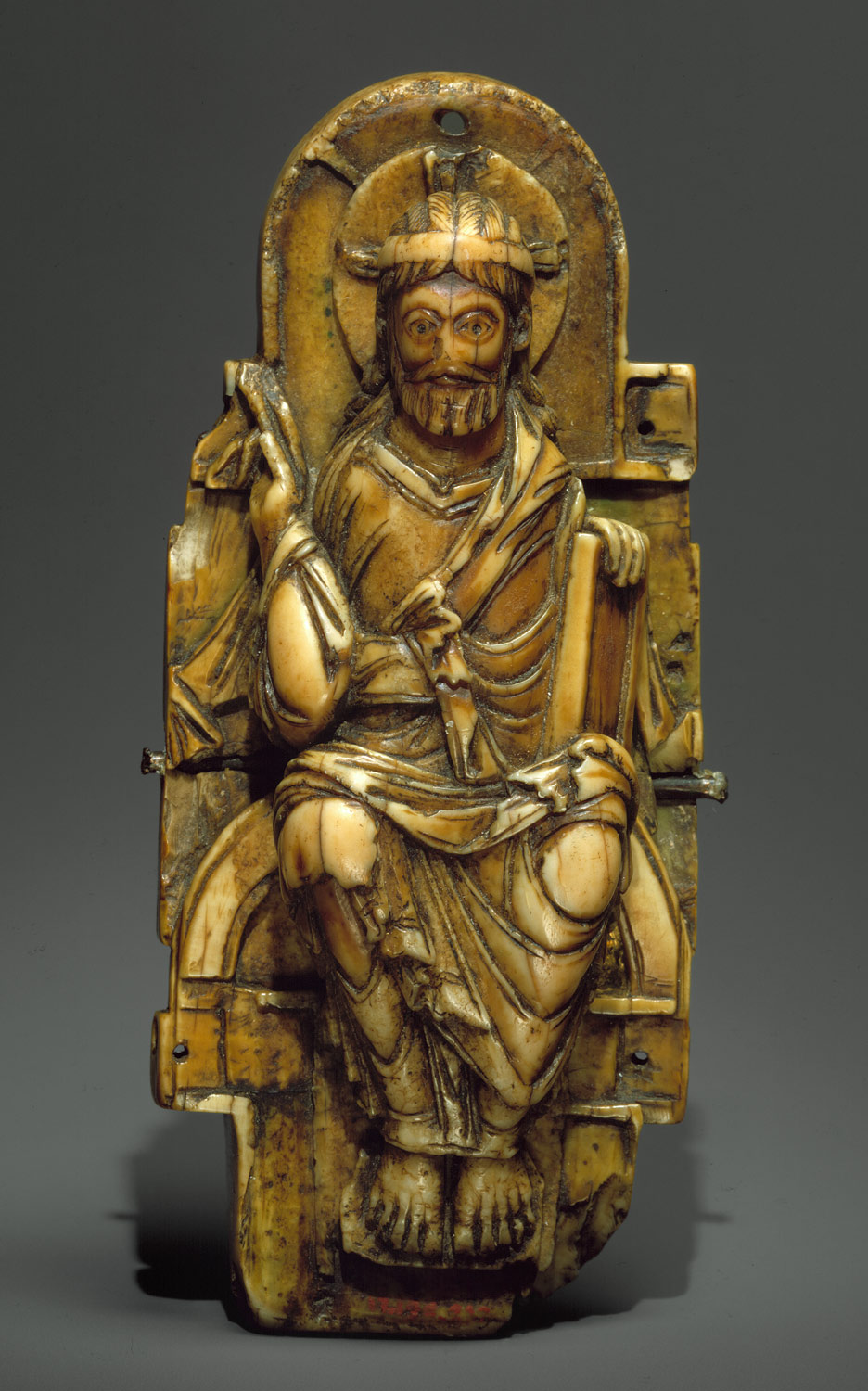In the early part of the period, the Roman province of Gaul gives way to the Frankish kingdoms, led for some 250 years by the Merovingian kings. Even under the Merovingians, the region remains recognizably Roman, preserving Roman administrative structures, language, learning, and many artistic practices. Christianity assumes ever greater importance as the nobility converts, founding large numbers of monasteries. The network of churches and monasteries built in the Merovingian period provides Charlemagne with an administrative infrastructure that will allow him to create his great empire in the ninth century. Charlemagne’s descendants, known as the Carolingians, will rule the region until almost the end of the period. Metalwork remains an important art form throughout the period. Highly accomplished examples of ivory carving and manuscript painting emerge under Carolingian rule. Though relatively few survive, many stone buildings—particularly in the form of churches, monasteries, and palaces—are built.
France, 500–1000 A.D.
Timeline
500 A.D.
625 A.D.
625 A.D.
750 A.D.
750 A.D.
875 A.D.
875 A.D.
1000 A.D.
Overview
Key Events
-
Clovis I becomes king of the Salian Franks when his father, Childeric I, a commander in the Roman army, dies. By the time of Clovis’ death in 511, he had established the Frankish kingdom as the dominant force in what had been the Roman province of Gaul (France). Clovis astutely converts to Orthodox Christianity in circa 486, thus gaining the wary trust of Byzantine rulers. Though his descendants, known as the Merovingians, would never wield the territorial power he once held, many of them nonetheless would be honored by Constantinople with titles such as consul and patrikios.
-
ca. 575–591
Gregory of Tours writes the Historia Francorum, a ten-book history recording the deeds of the Franks. Gregory becomes bishop of Tours in 573. His writings serve as the sole testimony to much of the architecture of his day, as most of these buildings no longer stand. He praises the craftsmanship of his generation and is a patron of many buildings and artworks himself, including a new Cathedral of Saint-Martin at Tours (destroyed in the Norman invasions of the ninth century).
-
599–600
In two letters to Bishop Serenus of Marseille, Pope Gregory the Great criticizes the bishop’s destruction of images in his diocese, arguing that pictures are useful for educating the illiterate. Gregory’s statements will serve as the basis for church doctrine concerning artistic images in the West for the next thousand years.
-
ca. 650
Saint Eligius, bishop of Noyon and renowned metalworker, fashions a cross of gold and jewels, a fragment of which is still preserved at the Cabinet des Médailles in Paris. Fine metalwork holds particular prestige for the Franks, who commission it for both personal jewelry and ecclesiastical objects.
-
October 732
Charles Martel and his army participate in a series of small encounters that are collectively called the Battle of Poitiers or the Battle of Tours. Charles, ruler of the Franks, is called upon by the duke of Aquitaine to help repel the Muslim incursions into what is now France, which began with the Arabs’ arrival in the Iberian Peninsula in 711. Emerging victorious, Charles ensures that the Muslims will proceed no further into Frankish territory.
-
751
Backed by the pope, Pépin the Short is elected king of the Franks by the noblemen of his kingdom, marking the beginning of the Carolingian dynasty. After his death in 768, he is buried at Saint-Denis and his kingdom divided between his two sons, Charles and Carloman. When Carloman dies in 771, all of the land passes to Charles, better known as Charlemagne.
-
790-792
Charlemagne’s court responds to the Iconoclastic controversy in Byzantium with the Libri Carolini (the Caroline Books). The treatise limits images to decorative or mnemonic uses. Although it falls short of advocating the destruction of images, it refuses to support Pope Gregory’s venerable claim that images can be used to teach the ignorant and seems to have met with an unenthusiastic response from Pope Hadrian I.
-
ca. 795
Charlemagne commissions the scribe Dagulf to create a small Book of Psalms (Paris, Louvre; Vienna, National Library) for Hadrian I, probably intended as part of a package of diplomatic gifts. The book is notable for its lavish use of gold and costly purple and blue pigments, as well as for its elegant ivory covers showing scenes of the textual transmission of the Psalms. The covers allude to Charlemagne’s ambitious efforts at ecclesiastical and educational reform, which include the large-scale production and distribution of newly copied and corrected Latin texts.
-
ca. 796–850
The scriptorium at the Monastery of Saint-Martin’s at Tours specializes in the production of single-volume Bibles that include all the books of the Old and New Testaments. These enormous tomes sometimes include miniature paintings used as dividers for major sections of the text. In 846, one such Bible is created for King Charles the Bald. It includes a long poem dedicating the book to the king as well as a painting depicting the monks presenting the manuscript to him (Paris, Bibliothèque Nationale).
-
800
Charlemagne is crowned “Emperor and Augustus” in Rome on Christmas Day by Pope Leo III, a gesture intended to bolster the power of both pope and king, to link Charlemagne’s rule with the emperors of ancient Rome, and to assert the parity of the Western Roman Empire with Byzantium.
-
843–ca. 900
After Charlemagne’s death in 814, his empire is controlled by his son and only heir Louis the Pious. Louis’s sons, however, fight over their father’s land. The dispute is settled by the Treaty of Verdun in 843, in which Charles the Bald receives Francia Occidentalis (much of western modern-day France), Lothair I receives Francia Media (central lands including parts of modern Belgium, the Netherlands, western Germany, eastern France, Switzerland, and much of Italy), and Louis II receives Francia Orientalis (land east of the Rhine River).
-
909
William I the Pious, duke of Aquitaine, donates land in Burgundy for the building of a Benedictine monastery dedicated to saints Peter and Paul. Hence the monastery of Cluny, which will become the largest in the West, is born. In the foundation charter, William renounces all rights to the monastery, allows for the free election of the abbot by the monks, and places the monastery directly under the control of the Papal See.
-
911
The Treaty of Saint-Clair-sur-Epte between Charles the Simple, king of the Franks, and Rollo (Hrolf), Viking leader of the Normans, is concluded. The Franks hand over the central piece of land that will become Normandy to the invaders from the north in an attempt to stop their attacks.
-
987
Hugues Capet ascends to the Frankish throne, inaugurating the Capetian dynasty and replacing the Carolingians. Initially the Capetians wield little authority beyond their capital at Paris, but in time their power grows and with it the importance of Paris as an administrative, ecclesiastical, and artistic center.
Citation
Related
Map

